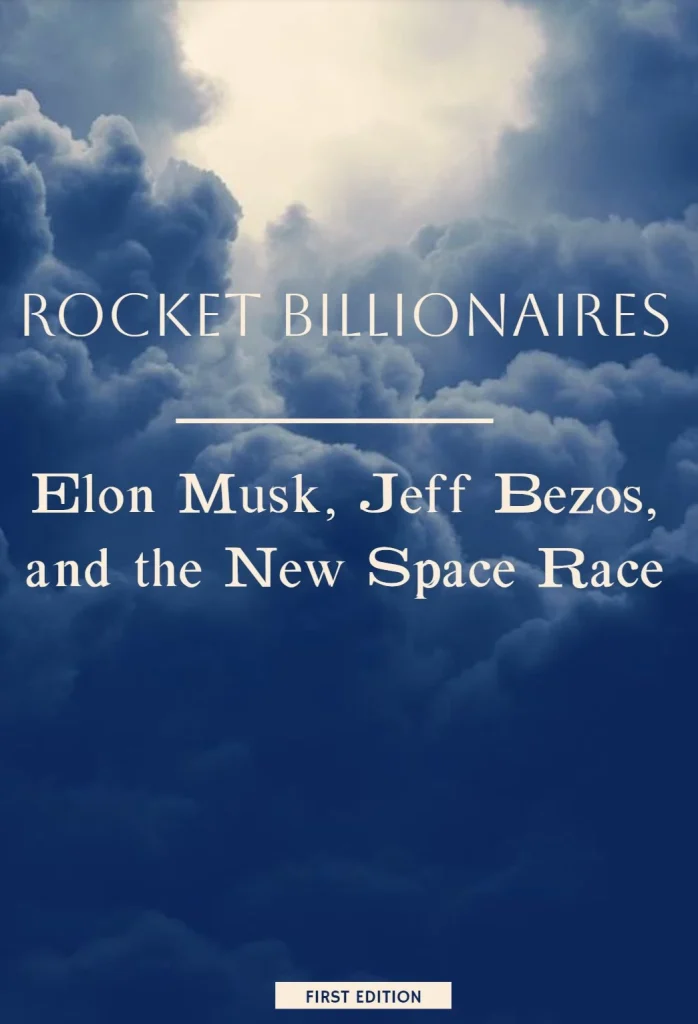From its inception until the beginning of the 21st century, the space industry belonged exclusively to various state enterprises or giant corporations that received large orders from governments or state agencies. For example, NASA placed orders for spacecraft, rockets, shuttles, etc., with Boeing and Lockheed Martin.
Twenty years ago, private companies entered this sector. In the 90s, they initially aimed to occupy the niche of satellite launches for television but faced significant setbacks. In the 2000s, they took a more thorough and slightly different approach by getting involved in the development of space tourism and attempting to compete with the aforementioned giants.
The pioneers in this venture were Jeff Bezos and Elon Musk. Later, Richard Branson joined the “space billionaires.” Bezos, with his wealth from Amazon, invested billions in developing rockets and ships for space tourism, creating the company Blue Origin. Richard Branson founded Virgin Galactic, also focusing on space tourism.
Musk, enriched by the sale of the payment system PayPal, established another private aerospace company, SpaceX. Initially, Musk planned to occupy the niche of small rockets to launch satellites for companies worldwide. However, he later dared to compete with the manufacturers collaborating with NASA, leading to the creation of the large Falcon 9 rocket and the Crew Dragon spacecraft, all designed for future Mars missions.

All of them took significant risks, faced financial difficulties, encountered failures, lagged behind schedules by years, yet persevered. The book “Rocket Billionaires” narrates the challenging journey of these individuals.
The text primarily focuses on Elon Musk and his SpaceX. Jeff Bezos and his Blue Origin are covered to a lesser extent, but still interesting and informative. Virgin Galactic and Richard Branson receive even less attention.
It would have been preferable if Tim Fernholz had written more about Bezos and Branson. Since both are mentioned in the title or on the cover, one would expect a more balanced distribution of time among these prominent figures.
The author devotes considerable attention to detailed accounts of behind-the-scenes battles and the political backdrop in the United States during those years. While crucial for explaining the crisis in the space industry, these parts can be challenging to read. Nevertheless, readers will find numerous fascinating details and facts about the development of private rockets and spacecraft.
Published in 2019, the book lacks coverage of significant events in the industry from recent years, such as the space tourism flights of Bezos and Branson, as well as the Crew Dragon’s role in transporting people to the International Space Station from the U.S. in 2020.
Despite this, Tim Fernholz effectively explains and narrates crucial events leading up to the book’s creation. “Rocket Billionaires: Elon Musk, Jeff Bezos, and the New Space Race” is written in a classic documentary style. It is somewhat ascetic but allows readers to learn more and fully grasp the subject matter.
The book has a hardcover, larger dimensions than standard editions (165×235 mm), and consists of 272 pages, making it a relatively quick read. The large and eye-friendly font, along with yellowish paper and visible print, adds to the reading comfort. The publisher, “Fabula,” utilized recycled materials, ensuring no harm to trees during the book’s production. Additionally, a convenient atlas ribbon bookmark is included.
Personally, the visible print was a bit distracting at first, but I quickly stopped noticing it. The main point is that this choice is well-justified.
Conclusion:
“Rocket Billionaires: Elon Musk, Jeff Bezos, and the New Space Race” is a high-quality non-fiction book about the space industry that will appeal to all readers interested in the topic. However, it delves into American politics and the history of NASA, the state, and companies like Boeing and Lockheed Martin.
For readers interested in behind-the-scenes affairs, these aspects will be bonuses. However, for enthusiasts eager to delve into the technical aspects of space flights, rocket and spacecraft development, these sections may appear the most tedious and exhaustive.
While “Rocket Billionaires” provides detailed insights into the space companies of Elon Musk, Jeff Bezos, and Richard Branson, it primarily emphasizes SpaceX, despite its inclusive title.